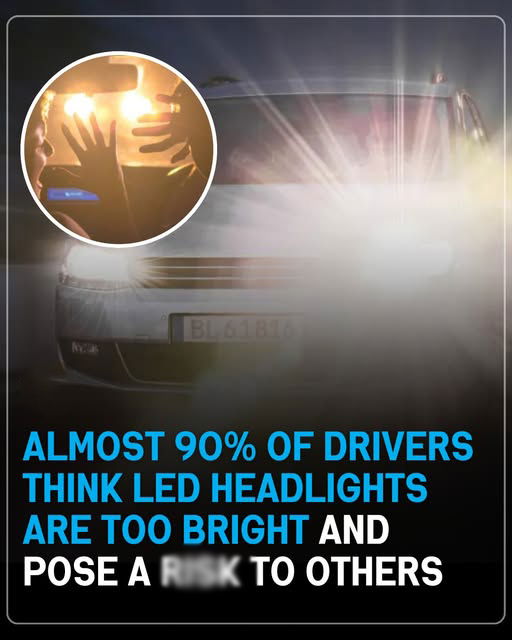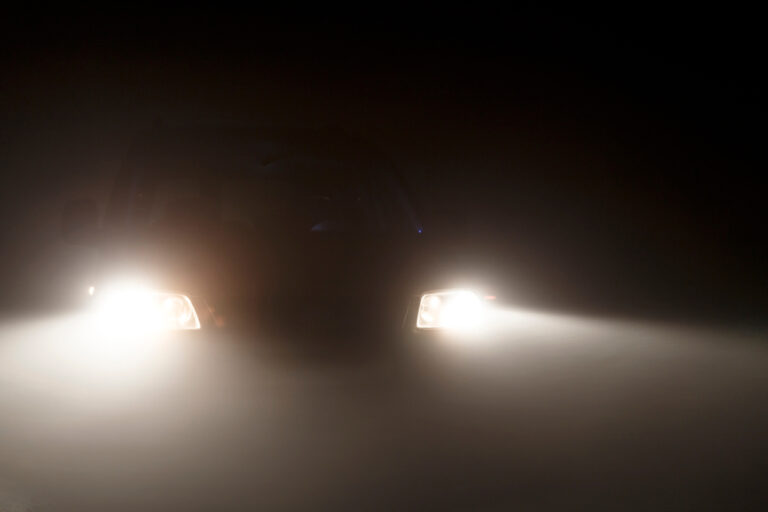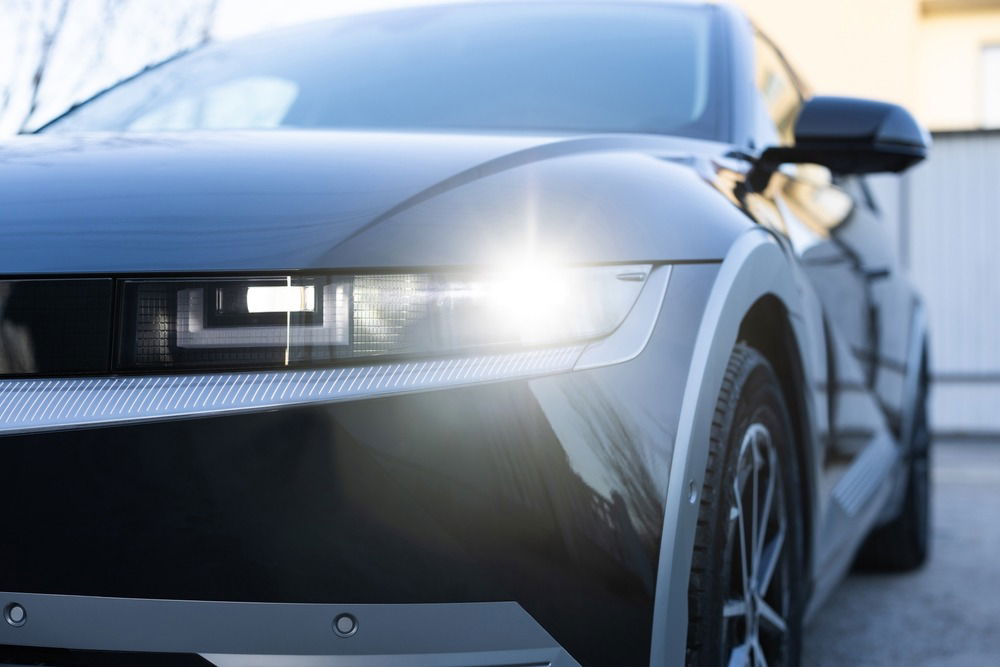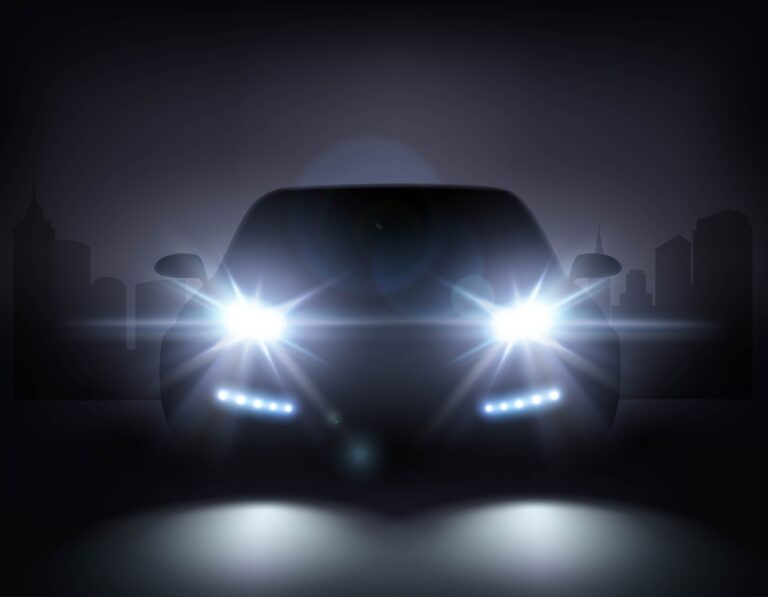
LED headlights have become popular in modern vehicles, thanks to their energy efficiency and stylish design. However, as these lights illuminate the roads, drivers have become increasingly concerned. Almost 90% of drivers consider that LED headlights are too bright, posing a substantial risk to others on the road.
While LEDs have indisputable advantages, their high brightness might cause temporary vision impairment for oncoming vehicles, raising concerns over whether they improve or jeopardize road safety.

The Rise of LED Headlights
LED headlights have swiftly become the gold standard in automobile lighting, replacing older halogen bulbs in many newer vehicles. Their appeal arises from a combination of energy efficiency, lifespan, and a more focused beam, which improves driver vision.
LEDs convert energy more effectively into light, making them a more environmentally conscious alternative. This innovation has not only improved car appearance but also helped to minimize energy use.
Manufacturers have adopted LED technology because it produces brighter, more natural light that mimics daylight. This helps drivers see hazards, read road signs, and traverse poorly lit regions.
Despite these advantages, the switch to LED headlights has not been without controversy. While they improve visibility for the driver, some road users have expressed concerns about the intensity of their beams. Oncoming drivers may experience substantial glare from sharper and more focused light, which is generally aimed at a higher angle.
Why Do Drivers Find LED Headlights Too Bright?
The idea that LED headlights are overly bright is not entirely unwarranted. While enhanced brightness is intended to improve driver visibility, it may unintentionally cause glare, especially for approaching vehicles.

Another issue that contributes to the discomfort is the color temperature of LED lights. LEDs frequently provide a cooler, bluish light that is closer to the spectrum of sunshine. While this may improve the driver’s visibility, it can be harsh and overwhelming to others. According to studies, blue-rich light sources scatter more in the eye, increasing the chance of discomfort and momentary blindness for people who face these beams directly.
Safety Implications of Overly Bright Headlights
One of the most serious risks is momentary blindness, often known as “disability glare,” which occurs when a driver is exposed to bright light that exceeds the eye’s ability to adjust.
This problem becomes even more serious on two-lane roads since approaching traffic is closer and there is less time to adjust to the glare. Bright LED headlights can confuse drivers, increasing the risk of a head-on collision. The effects are exacerbated under poor weather circumstances, as rain or fog can magnify the glare by reflecting it into the driver’s eyes.
These risks also affect pedestrians and bicycles. Bright headlights can reduce the visibility of non-motorized road users, making them more difficult to see.
Expert Insights and Solutions
Sudden exposure to a bright, concentrated beam can result in discomfort and transient visual impairment, known as glare recovery time. This effect is particularly significant for elderly drivers, whose eyes take longer to adjust to variations in brightness.
Even the most powerful lighting solutions, if incorrectly installed or misaligned, can become risks rather than assets. These experts support mandated headlight alignment tests during vehicle inspections to ensure compliance with safety regulations.

Potential solutions go beyond regulatory and technical fixes. Some experts recommend that drivers use anti-glare gear, like as polarized or anti-reflective glasses, to decrease the influence of bright headlights on their vision.
What Can Drivers Do?
One of the simplest yet most effective strategies is to ensure that their vehicle’s mirrors are properly set. One of the simplest yet most effective strategies is to ensure that their vehicle’s mirrors are properly set.

Another effective method is to utilize anti-glare lenses, which are available in both prescription and non-prescription options. These lenses are intended to lessen the harshness of bright lights, resulting in clearer and more pleasant vision during night driving.
Keeping a safe distance from vehicles with extremely bright headlights will help limit their impact. When approaching oncoming traffic, gazing on the road’s right edge rather than directly at the headlights can help reduce the glare’s blinding effect.


















